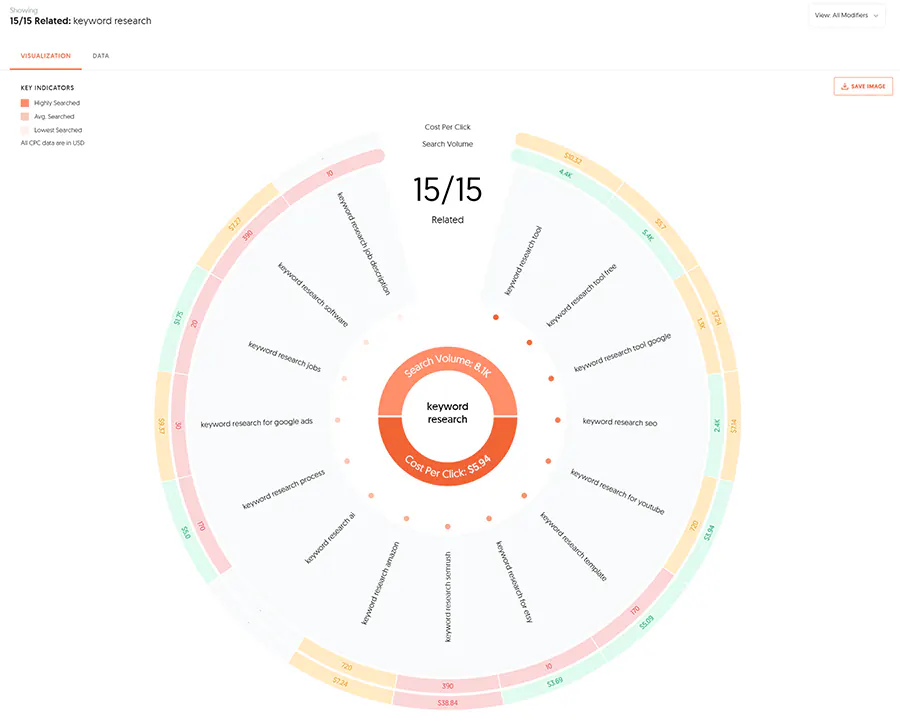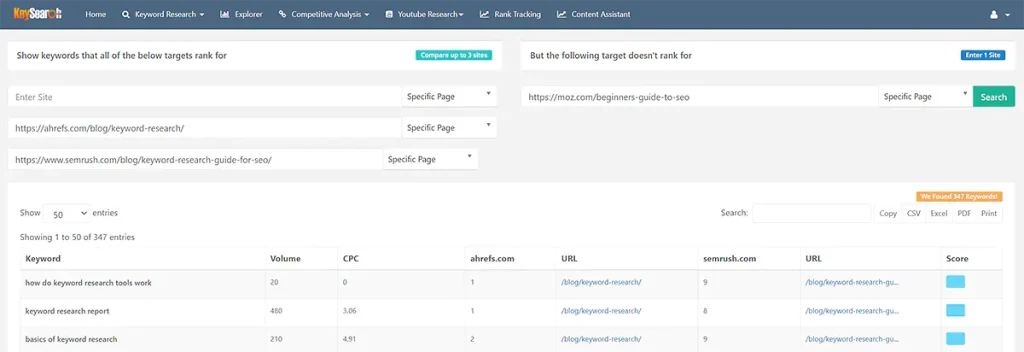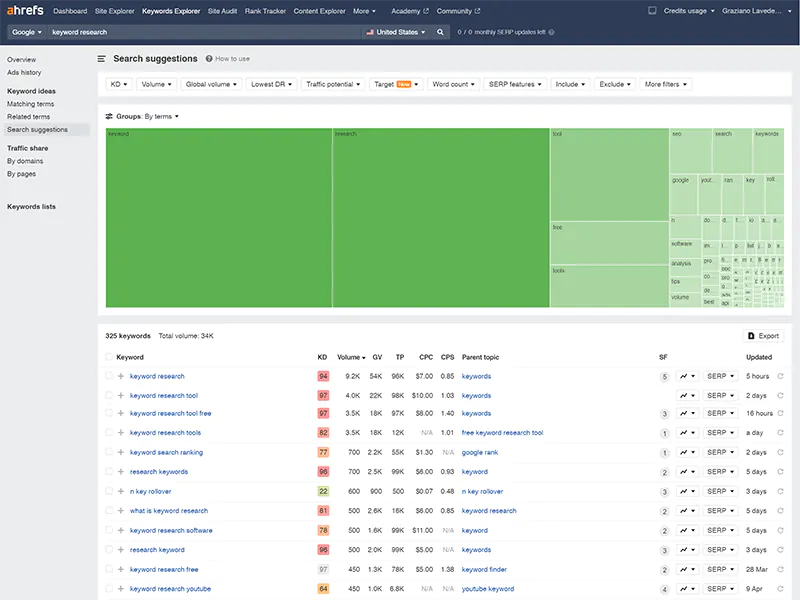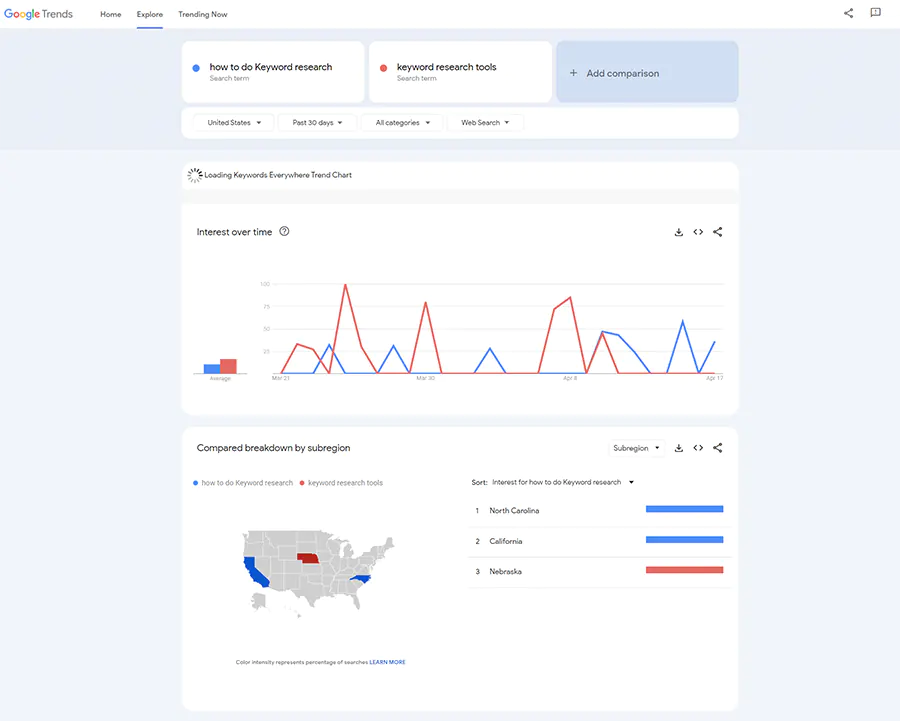How to do Keyword Research for Beginners in 2023
Do you want to climb the search engine rankings and bring more organic traffic to your site? The secret sauce is mastering the art of keyword research. The How to Do Keyword Research for Beginners guide will take you through the entire process, enabling you to boost your website’s search engine visibility like never before.
Understanding the Basics of Keyword Research
Keyword research is the cornerstone of every successful SEO strategy. It’s crucial to know what your target audience is searching for and how to optimize your content accordingly. Let’s start by grasping the fundamentals.
Definition of Keywords and Their Role in SEO
Keywords are the terms or phrases users enter into search engines when seeking information. They act as a bridge between your content and potential visitors. Optimizing your content with relevant keywords increases its chances of ranking higher on search engine results pages (SERPs), driving organic traffic to your website.
Types of keywords: head, body, and long-tail
Keywords come in three flavors: head, body, and long-tail.
- Head keywords are short, broad terms with high search volumes but fierce competition.
- Body keywords are 2-3 word phrases with moderate search volume and competition.
- Long-tail keywords are longer, more specific phrases with lower search volume but less competition.
Each type has its merits, and a balanced mix can significantly enhance your SEO efforts.
Importance of search intent and user experience
Understanding search intent is vital for keyword research. Search intent is all about understanding the user’s motivation behind a query. By addressing search intent, you ensure that your content aligns with the user’s expectations, leading to a better user experience and higher rankings.
How to do Keyword Research for beginners Step-by-Step
Embarking on the keyword research journey might seem overwhelming, but fear not! We’ve broken down the process into six easy-to-follow steps. Each step has been carefully crafted to ensure you get the most out of your keyword research endeavors.
Step 1: Identifying your Niche and Target Audience
Defining your niche and target audience
First, pinpoint your niche and target audience. Your niche is the specific market you cater to, while your target audience comprises the individuals most likely to be interested in your offerings. Knowing these factors will help you focus your keyword research efforts and generate more relevant results.
Reasons for knowing your audience before starting keyword research
Understanding your audience is crucial because it helps you tailor your content to their needs, preferences, and search patterns. This alignment increases the chances of your content resonating with users and ranking higher on SERPs.

The Role of buyer personas
Buyer personas are imaginative representations of your perfect customers. They provide valuable insights into your audience’s demographics, psychographics, and behaviors, helping you identify their pain points and needs. You can target keywords that genuinely appeal to your audience by crafting content around these insights.
Step 2: Brainstorming initial keyword ideas
Drawing from your knowledge of your niche and audience
Start by brainstorming potential keywords that align with your niche and audience. Consider their interests, pain points, and the language they use. This exercise will provide you with keywords to refine and expand upon.
Using competitor analysis to identify potential keywords
Analyzing your competitors’ content can reveal keywords you have overlooked. Identify top-performing content in your niche and examine the keywords they target. Remember, the goal isn’t to copy your competitors but to glean inspiration and identify gaps in your strategy.

Importance of having a diverse keyword pool
A diverse keyword pool ensures you target a wide range of user queries, increasing the chances of reaching a broader audience. By incorporating head, body, and long-tail keywords, you can optimize your content for various stages of the user’s journey and address different aspects of your niche.
Step 3: Utilizing keyword research tools
Introduction to popular keyword research tools (e.g., Google Keyword Planner, Ahrefs, SEMrush)
Keyword research tools streamline the process of finding and analyzing keywords. Some popular options include Google Keyword Planner, Ahrefs, KeySearch, and SEMrush. Each tool offers unique features, so explore your options to determine which best suits your needs.

How to use these tools for generating keyword ideas and analyzing keyword metrics
Keyword research tools help you generate keyword ideas based on your initial brainstorm and provide valuable metrics, such as search volume, competition, and keyword difficulty. Use these insights to refine your keyword list and prioritize the most promising options.
Comparing and choosing the right tool for your needs
Different tools cater to different needs and budgets. Compare the features, pricing, and ease of use of various options to select the best SEO keywords tool that fits your unique circumstances.
If you wonder how to do keyword research for free? The best free keyword research tool in my humble opinion is the Google Keyword Planner and the Google Trends tool.

Step 4: Analyzing keyword metrics and competition
Explanation of keyword metrics (e.g., search volume, competition, keyword difficulty)
Keyword metrics provide valuable insights into the potential performance of a keyword.
- Search volume indicates the number of monthly searches for a keyword
- Competition refers to the intensity of rival websites targeting the same keyword
- Keyword difficulty estimates how challenging it will be to rank for a particular keyword.

Importance of considering search intent and relevancy
While metrics are crucial, pay attention to search intent and relevancy. Ensure your chosen keywords align with your content and address the user’s intent. Focusing on relevancy will help you rank higher and foster a positive user experience.
How to find low-competition, high-traffic keywords
To find low-competition, high-traffic keywords, look for long-tail phrases with reasonable search volume and lower keyword difficulty. These keywords often offer a sweet spot for driving traffic without battling fierce competition.

Step 5: Organize and prioritize your keyword list
Creating a keyword matrix to organize your findings
A keyword matrix is handy for organizing your keywords based on various parameters, such as search volume, competition, and relevancy. You can quickly identify high-priority options and track your keyword strategy’s progress by categorizing your keywords.
Prioritizing keywords based on metrics, relevancy, and business goals
When prioritizing keywords, consider their metrics, relevancy to your content, and alignment with your business goals. Focus on keywords with the highest potential to drive traffic and conversions while remaining true to your brand and audience.
The Role of content strategy in keyword prioritization
Your content strategy should guide your keyword prioritization. By mapping out your content plan, you can identify areas where specific keywords will have the most significant impact, ultimately optimizing your content for maximum results.
Step 6: Integrating keywords into your content
Best practices for incorporating keywords (e.g., title, headings, meta tags, URL)
Integrating keywords into your content requires a strategic approach. Include keywords in your title, headings, meta tags, and URL while ensuring the text remains natural and user-friendly.
Avoiding keyword stuffing and maintaining natural language
Keyword stuffing, or overusing keywords, can lead to penalties from search engines and a poor user experience. Instead, focus on creating valuable content that seamlessly incorporates keywords without compromising readability.
Monitoring and updating your keyword strategy over time
SEO is an ongoing process. Regularly monitor your keyword strategy’s performance and adjust as needed. Stay attuned to changes in search engine algorithms, user behavior, and industry trends, and update your keyword list to maintain your competitive edge.
Keyword Research why is it important?
Remember that keyword research is both an art and a science. Metrics and data analysis are crucial, as are understanding your audience’s needs and preferences. Stay focused on delivering valuable content that addresses search intent and enhances user experience. Doing this will establish a solid SEO foundation that drives organic traffic and propels you toward achieving your business objectives.
What’s Next: Beyond Keyword Research
While keyword research is a vital component of SEO, it’s only part of the equation. Diversify your skill set and stay up-to-date with industry best practices to ensure your website remains ahead of the curve. To further enhance your SEO efforts, consider exploring on-page optimization, link building, and technical SEO.
Alternatives to Keyword Research
Experiment with different approaches to discover the best combination for your unique situation. Though keyword research is a tried-and-true method for optimizing your content, there are other avenues to explore. Some alternatives include topic clustering, where you create content hubs around core topics, and user-generated content, which can provide valuable insights into the language and concerns of your target audience.
Additional Resources
To further enhance your keyword research skills, explore these helpful resources:
- Moz’s Beginner’s Guide to SEO: https://moz.com/beginners-guide-to-seo
- Ahrefs’ Keyword Research Guide: https://ahrefs.com/blog/keyword-research/
- SEMrush’s SEO Fundamentals Course: https://www.semrush.com/academy/courses/seo-fundamentals-course-with-greg-gifford/
Conclusion
Recap of the importance of effective keyword research for SEO success
Effective keyword research is paramount to achieving SEO success. Understanding the basics, following a step-by-step process, and continuously refining your keyword strategy will pave the way for higher search engine rankings and increased organic traffic.
Encouragement to continuously refine and update your keyword strategy
Remember, SEO is an ongoing journey. Keep refining and updating your keyword strategy to stay competitive and adapt to the ever-changing world of search engines and user behavior.

Graz is a tech enthusiast with over 15 years of experience in the software industry, specializing in AI and software. With roles ranging from Coder to Product Manager, Graz has honed his skills in making complex concepts easy to understand. Graz shares his insights on AI trends and software reviews through his blog and social media.



